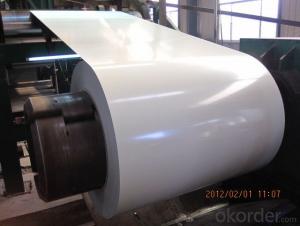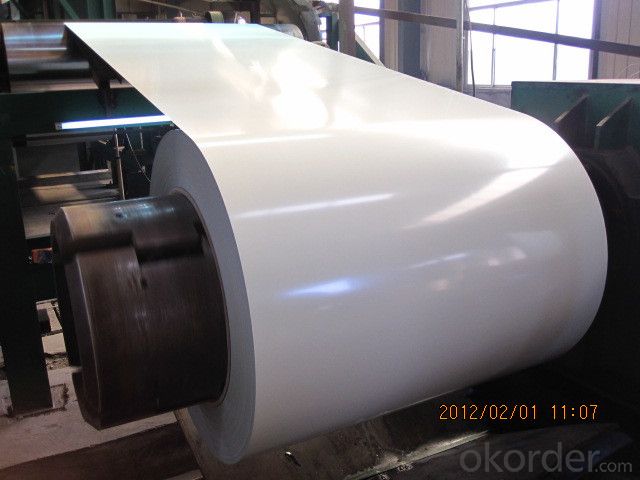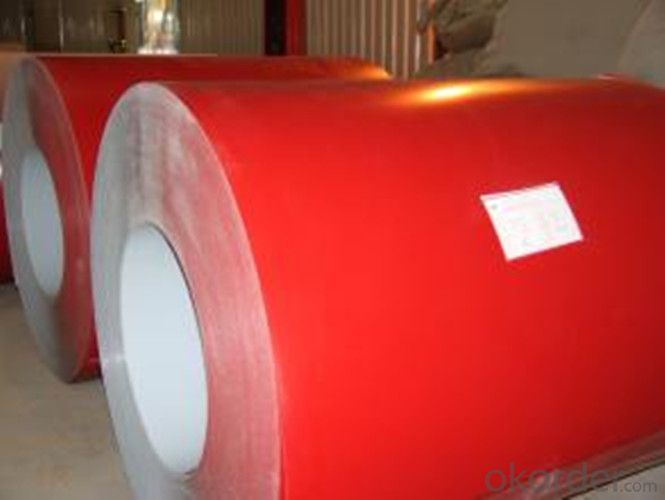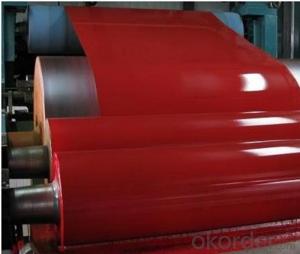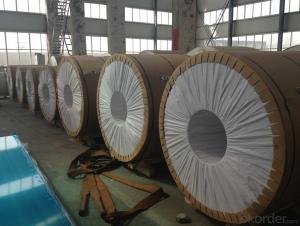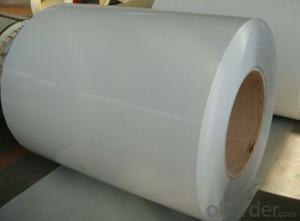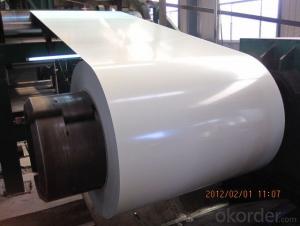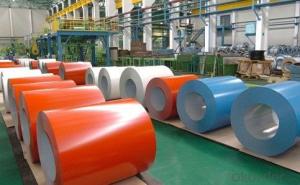Nailess Aluminum Coil for Prepainted Aluminum Roll in Nameplate Materials Production
- Loading Port:
- Shanghai
- Payment Terms:
- TT OR LC
- Min Order Qty:
- 2 m.t.
- Supply Capability:
- 60000 m.t./month
OKorder Service Pledge
OKorder Financial Service
You Might Also Like
Specification
Prepainted Aluminium Roll For Nameplate Materials Production
Alloy | 1050, 1060,1100, 3003 3004 3105 3A21 5005 5052 etc |
Temper | O/H12/H14/H1/H18/H32/H34/H36/H38//H111/H112/H116/H321/T6/T651/T3/T351 etc |
Thickness | 0.1mm to 6mm |
Width | 20mm to 3300mm |
Coil weight | 100kgs to 6 tons depends on actual requirement |
Core material | Aluminum or paper |
Coil inner diameter | 75mm, 150mm, 200mm, 300mm, 405mm, 505mm or as required |
Appplication | construction, roofing, decoration, lamping etc |
Package | eye to wall or eye to the wall for aluminum coil with wood pallet (wooded case also available) |
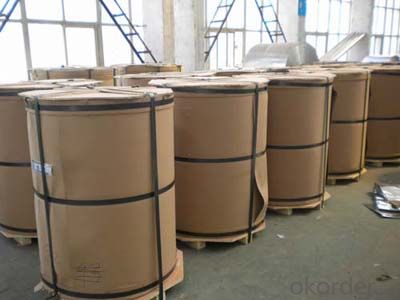
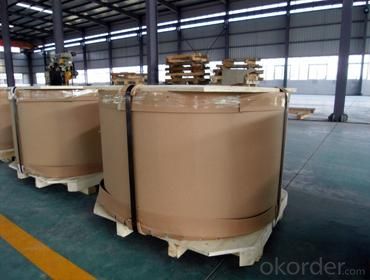
3) Glass curtain wall frame
4) Interior decoration
5) Elevator decoration
6) Signs, nameplate, bags making.
7) Automobile parts material
8) Office and Household appliances: HVAC equipments
9) The consumer electronics: mobile phones, digital cameras, MP3 .etc.
Coating varieties
Polyester Coatings (PE)
PE (polyester) coatings exhibit an excellent combination of hardness, flexibility, flow, appearance, and superior resistance to dirt retention in indoor and outdoor applications. These coatings are highly resistant to abrasion, metal marking, staining, and marring, and require minimal maintenance. Glazetech uses polyester paints which provide excellent colour and gloss retention properties.
Polyvinylidene Fluoride Coatings (PVDF)
PVDF (polyvinylidene fluoride) is a chemical resistant thick film barrier coating commonly used in architectural applications where both excellent appearance and substrate protection must be maintained over a long period of time. This coating is unaffected by most chemicals and solvents and has excellent wear and abrasion resistance. PVDF also has a high dielectric strength, excellent resistance to weathering and the ability to self extinguish.
FAQ
--Q: Do you provide free samples?
--A: Yes, free samples will be sent to you on freight at destination.
--Q: Can I get your latest products catalogue?
--A: Yes, it will be sent to you in no time.
--Q: What is the MOQ?
--A: 2 tons
--Q: What are your payment terms?
--A: We accept L/C, T/T.
--Q: What kinds of alloy can you supply?
--A: 1000 series: 1050, 1060, 1070, 1100, 1145, 1200
3000 series: 3003, 3004, 3105, 3104
5000 series: 5052, 5083, 5754, 5182
6000 series: 6061, 6063, 6062, 6063
8000 series: 8011, 8021
--Q: What’s the coating of top side?
--A: PVDF and PE coating
--Q: What kinds of temper can you supply?
--A: O-H112: O,H12,H14,H16,H18,H22,H24,H26,H,32,H34,H111,H112
T3, T4, T6
- Q: What are the common applications of aluminum coils in the aerospace industry?
- Aluminum coils are commonly used in the aerospace industry for various applications such as constructing aircraft frames, manufacturing wings, building fuselages, and designing engine components. The lightweight yet strong nature of aluminum makes it an ideal choice for these purposes, as it helps reduce overall aircraft weight, enhance fuel efficiency, and improve performance. Additionally, aluminum's corrosion resistance properties play a crucial role in ensuring the longevity and durability of aerospace structures.
- Q: What is the minimum thickness available for aluminum coils?
- The specific requirements of the application can cause variations in the minimum thickness available for aluminum coils. Typically, aluminum coils can have a minimum thickness of approximately 0.006 inches or 0.15 millimeters. It is crucial to consider that different industries or uses may impose distinct minimum thickness demands. Therefore, it is advisable to seek guidance from a manufacturer or supplier to ascertain the suitable thickness for a particular application.
- Q: How are aluminum coils joined in a continuous process?
- Aluminum coils are joined in a continuous process using various techniques such as welding, brazing, and adhesive bonding. Welding is a common method used to join aluminum coils together. It involves melting the edges of the coils and then fusing them together. This can be achieved through various welding processes such as TIG (Tungsten Inert Gas) welding, MIG (Metal Inert Gas) welding, or laser welding. These methods provide a strong and durable bond between the coils. Brazing is another technique used for joining aluminum coils. It involves heating the coils and using a filler material with a lower melting point than the aluminum to create the joint. The filler material, often a brazing alloy, is applied to the joint area, and when heated, it melts and flows into the gap between the coils, forming a solid bond upon cooling. Adhesive bonding is also employed in the continuous joining of aluminum coils. This method involves applying a specialized adhesive or glue to the surfaces of the coils that need to be joined. The adhesive is carefully selected to have excellent bonding properties with aluminum. The coils are then pressed together, and the adhesive cures, creating a strong and reliable bond. Each joining technique has its advantages and is chosen based on factors such as the application requirements, the type of aluminum being used, and the desired level of strength and durability. The choice of joining method in a continuous process depends on the specific needs of the production line and the final product.
- Q: Can aluminum coils be used in the production of electrical conductors?
- Yes, aluminum coils can be used in the production of electrical conductors. Aluminum is an excellent conductor of electricity, with approximately 61% conductivity compared to copper. It is lightweight, cost-effective, and has a high melting point, making it suitable for various electrical applications. Aluminum coils are commonly used in the manufacturing of power transmission lines, electrical cables, and transformer windings. However, it is worth noting that aluminum has a lower tensile strength compared to copper, so it may require a larger cross-sectional area to achieve the same electrical conductivity. Additionally, aluminum coils may require additional surface treatments or coatings to prevent oxidation and ensure long-term performance.
- Q: Are there any limitations on the anodizing of aluminum coils?
- The anodizing of aluminum coils is subject to certain limitations. To begin with, the size and weight of the aluminum coils can present constraints. Anodizing is typically carried out in tanks or baths, so the coil must fit within the tank's capacity. Moreover, larger and heavier coils may necessitate specialized equipment or processes to ensure proper anodizing. Furthermore, the alloy composition of the aluminum coils can impact the anodizing process. Different aluminum alloys respond differently to anodizing, and some alloys may not anodize as effectively as others. It is crucial to consider the alloy composition and seek advice from experts to determine the suitability and potential limitations of anodizing specific aluminum coils. Additionally, the surface condition of the coils can influence the quality of anodizing. Imperfections such as scratches, dents, or surface contaminants can affect the consistency and uniformity of the anodized layer. It is vital to thoroughly clean and prepare the coils before anodizing to achieve the desired outcome. Lastly, certain design features or complex shapes of the aluminum coils can present challenges for anodizing. Anodizing involves immersing the coil in an electrolyte solution, and intricate designs or complex shapes may hinder the achievement of a uniform coating thickness. Overcoming these limitations may require specialized masking or racking techniques. Collaborating closely with anodizing experts or service providers is essential to comprehend and address any limitations specific to the aluminum coils, ultimately achieving the desired anodizing results.
- Q: What is the thermal conductivity of aluminum coils?
- The thermal conductivity of aluminum coils is high, making them efficient in transferring heat.
- Q: Can aluminum coils be painted for custom designs?
- Yes, aluminum coils can be painted for custom designs. Aluminum is a versatile material that can be coated with various paints and finishes, allowing for a wide range of custom design options.
- Q: Is it possible to use an aluminum coil for cooking rice?
- <p>While it is technically possible to use an aluminum coil to cook rice, it is not recommended due to potential health risks. Aluminum can leach into food, especially when heated, and long-term exposure to aluminum may have adverse effects on health. Instead, use materials like stainless steel, cast iron, or non-stick cookware specifically designed for cooking rice to ensure safety and better results.</p>
- Q: Are aluminum coils suitable for signage systems?
- Yes, aluminum coils are highly suitable for signage systems. They are lightweight, durable, and weather-resistant, making them ideal for both indoor and outdoor signage. Aluminum coils can be easily shaped and molded into various designs and sizes, providing flexibility in creating custom signage solutions. Additionally, aluminum coils offer excellent corrosion resistance and can withstand harsh environmental conditions, ensuring long-lasting and visually appealing signage.
- Q: What is the minimum order quantity for aluminum coils?
- The minimum order quantity for aluminum coils may differ based on the supplier and specific product requirements. Certain suppliers may set a minimum order quantity of one coil, whereas others may mandate several coils or even a full container load. To determine the minimum order quantity for aluminum coils, it is advisable to directly reach out to the supplier or manufacturer, as it can vary.
Send your message to us
Nailess Aluminum Coil for Prepainted Aluminum Roll in Nameplate Materials Production
- Loading Port:
- Shanghai
- Payment Terms:
- TT OR LC
- Min Order Qty:
- 2 m.t.
- Supply Capability:
- 60000 m.t./month
OKorder Service Pledge
OKorder Financial Service
Similar products
Hot products
Hot Searches
Related keywords
